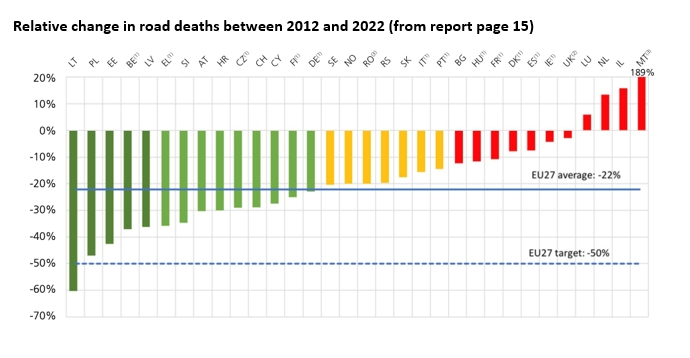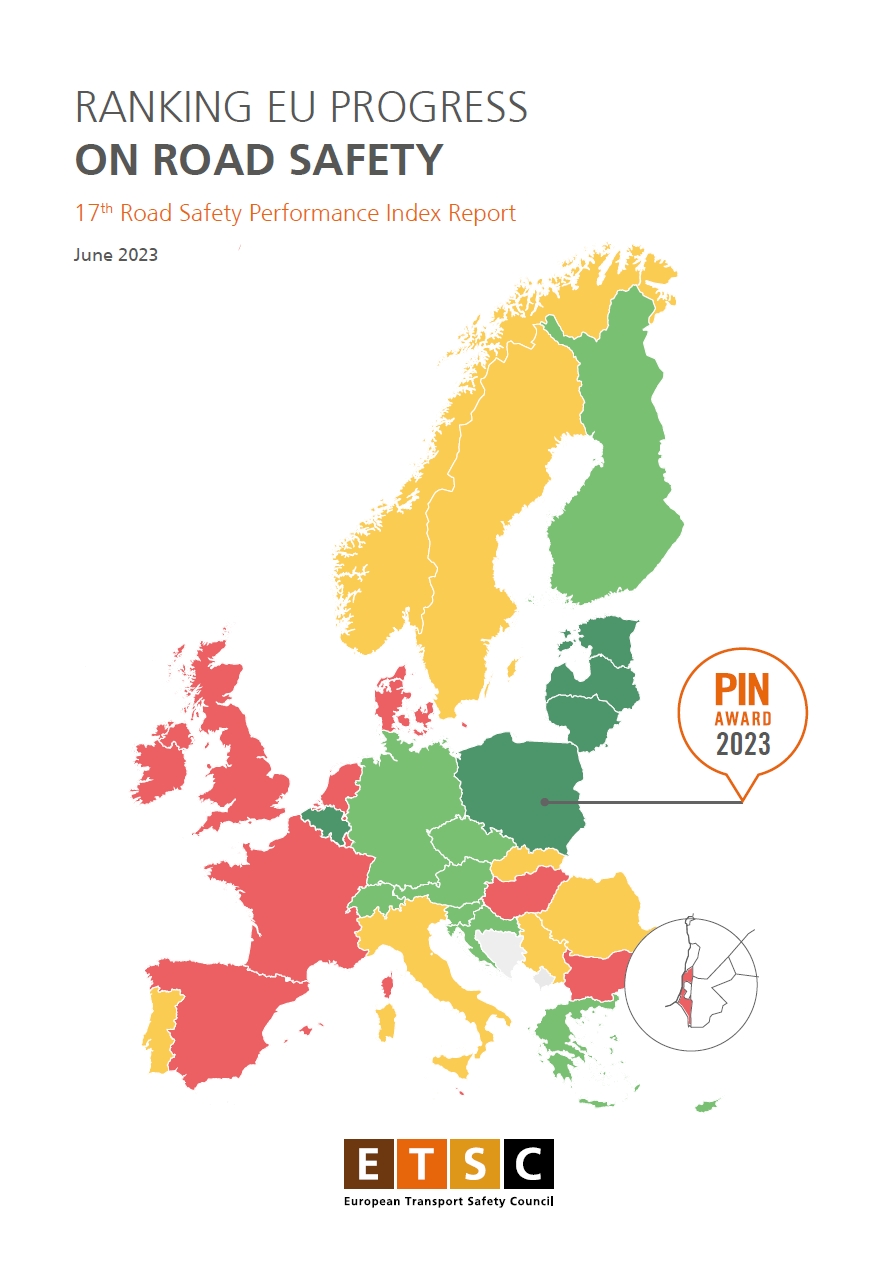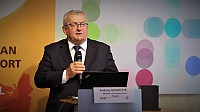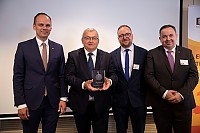Poland wins international road safety award
The European Transport Safety Council (ETSC) has awarded its 2023 Road Safety Performance Index (PIN) Award to Poland for the first time. The country cut road deaths by 47% between 2012 and 2022, a rate only bettered by Lithuania, last year’s winner. The EU average reduction was 22%.
Road mortality (the number of road deaths per inhabitant) stood at 50 per million in Poland last year, down from 93 per million in 2012. Mortality in 2022 was better than Italy (54 per million). Norway had the safest roads in Europe (21 per million) followed by Sweden (22 per million).
The announcement coincides with new analysis published today by ETSC which shows road deaths in the EU rose by 4% last year, to 20,679. That number is still 9% lower than in 2019, the last year before the Covid-19 pandemic dramatically altered traffic volumes. However, ETSC is warning that a 17.2% decrease would have been needed since 2019 in order to stay on track to reach the EU and UN target of halving the number of road deaths by 2030.
The ETSC panel of experts cited several key elements in the decision to award this year’s prize to Poland in addition to the substantial reduction in road deaths:
- Poland’s comprehensive National Road Safety Programme 2021-2030 which sets targets to cut both deaths and serious injuries by 50%;
- A large-scale four-year Safe Road Infrastructure Programme;
- Expansion of the speed camera and time-over-distance camera network;
- An increase in drink-driving enforcement checks of 19% on average each year between 2010 and 2019;
- Introduction of the “emergency corridor” system of enabling emergency vehicles to access collision sites on motorways.
ETSC says speed limits and observed vehicle speeds in Poland are still too high. The 140 km/h maximum speed on motorways is the highest in the EU with the exception of Germany. ETSC has welcomed the decision to axe higher night-time speed limits in urban areas, which was replaced with a permanent 50 km/h limit in 2021. However, ETSC says Poland should also consider limiting speeds to 30 km/h on roads used by pedestrians and cyclists in urban areas.

Antonio Avenoso, Executive Director of the European Transport Safety Council said:
“In ten years, Poland has greatly improved road safety, and set an example on how to take the issue seriously. There has been a genuine commitment to setting targets, improving infrastructure and boosting enforcement, all key factors in this impressive reduction.
“For Europe as a whole, more work is needed, at the EU and national levels. The ‘road safety package’, announced by the European Commission in March, makes some positive changes to driver licensing and could improve cross-border enforcement. The new initiative to enable cross-border recognition of driving bans is also welcome. It’s now up to Member States and the European Parliament to ensure elements which could have a negative impact on road safety are removed and the package’s potential road safety benefits aren’t watered down on the often-treacherous road to becoming law.
“At the national level, it is up to governments across Europe to strive by all means at their disposal to resume their annual reductions in numbers killed and seriously injured in line with the EU and UN targets for 2030.”

Download the report at:
Video: promo clip (00:30 / 1080p) Poland wins the 2023 ETSC Road Safety Performance Index Award
https://www.youtube.com/watch?v=ozDE20CRRrQ
Video: an animated graph (00:36 / 720p) showing how road mortality has improved across Europe between 2001 and 2022.
https://www.youtube.com/watch?v=22UHhwjvBKg
Follow ETSC on twitter @etsc_eu and LinkedIn. #PIN2023
Photo: mi.gov.pl







